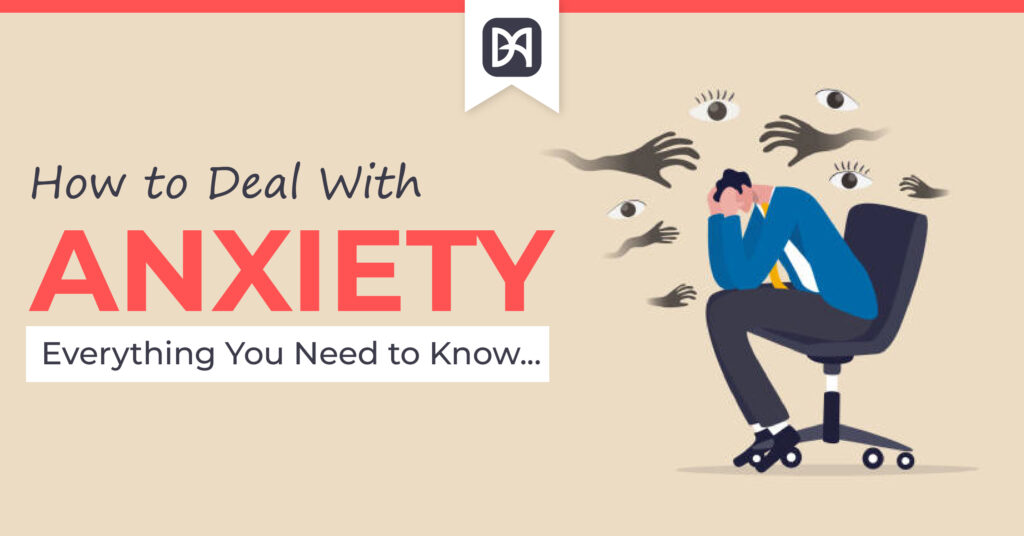
Don’t let anxiety control your life. Take the first step towards managing it and reclaim your peace of mind.
Anxiety, that ever-present gnawing feeling, can be a debilitating force in our lives. It can manifest in various ways, from racing thoughts and physical tension to panic attacks and social phobias. While anxiety can be a normal human response to stress, when it becomes chronic and interferes with daily life, it’s crucial to learn how to manage it effectively.
Understanding the Source:
The first step to dealing with anxiety is understanding its root cause. Is it work-related stress, financial worries, or a deeper emotional issue? Identifying the triggers can help you develop targeted coping mechanisms. For instance, if social situations trigger anxiety, practicing relaxation techniques beforehand can be helpful.
Self-Care: Your Weapon against Anxiety:
There are several self-care strategies that can significantly reduce anxiety levels:
1. Mindfulness and Meditation:
Mindfulness practices like meditation and deep breathing help center your focus on the present moment, calming the mind and reducing anxiety. Several apps and online resources can guide you through these practices.
2. Regular Exercise:
Physical activity releases endorphins, natural mood boosters that combat anxiety. Aim for at least 30 minutes of moderate-intensity exercise most days of the week. Walking, swimming, yoga, and dancing are all excellent options.
3. Healthy Diet and Sleep:
What you eat and how you sleep directly impact your mental well-being. Opt for a balanced diet rich in fruits, vegetables, and whole grains. Establish a regular sleep schedule and prioritize getting 7-8 hours of sleep each night.
4. Relaxation Techniques:
Progressive muscle relaxation, guided imagery, and spending time in nature can all help soothe the nervous system and ease anxiety. Experiment and find techniques that work best for you.
5. Limiting Stimulants:
Caffeine and alcohol can worsen anxiety symptoms. Consider limiting your intake of these substances and explore healthier alternatives to manage stress.
Building Your Support System:
Don’t hesitate to reach out for help. Talking to a trusted friend, family member, or therapist can offer invaluable support and guidance. Consider joining a support group for people living with anxiety. Sharing your experiences and learning from others can be immensely helpful.
Professional Help: When Self-Care isn’t Enough:
If self-care strategies aren’t providing sufficient relief, seeking professional help is crucial. A mental health professional can diagnose the underlying cause of your anxiety and recommend evidence-based treatments. These might include:
1. Cognitive Behavioral Therapy (CBT):
CBT helps identify and change unhelpful thought patterns that contribute to anxiety. By learning to challenge negative thoughts and develop coping mechanisms, you can significantly reduce anxiety symptoms.
2. Exposure Therapy:
This therapy involves gradually exposing yourself to situations that trigger your anxiety in a safe and controlled environment. This helps you develop coping skills and desensitize yourself to anxiety triggers over time.
3. Medication:
In some cases, medication may be prescribed to manage anxiety symptoms. Antidepressants and anti-anxiety medications can provide relief and improve overall functioning.
Remember: Dealing with anxiety is a journey, not a destination. There will be good days and bad days, but with consistent effort and the right tools, you can manage your anxiety and live a fulfilling life.